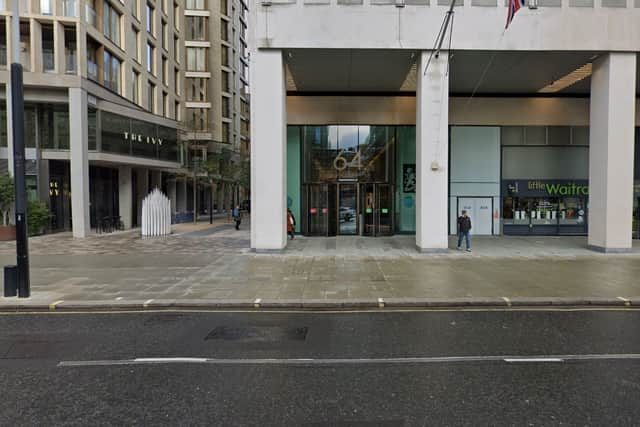Westminster Council: ‘Excessive delays’ in tackling mould in baby’s home, finds Housing Ombudsman
and live on Freeview channel 276
Westminster City Council has been slammed by the Housing Ombudsman for failing to take action after a newborn baby was left exposed to damp and mould in a home for more than two years.
Despite knowing since January 2021 that a four-month-old baby was present in the property, the Housing Ombudsman said there were a series of “excessive and unreasonable delays” by the local authority, which was found to have engaged in severe maladministration by the watchdog.
Advertisement
Hide AdAdvertisement
Hide AdWhen Westminster Council first visited the property, it noted ventilation was required to deal with the damp and mould, as well as that there was damage to multiple walls and ongoing leaks which would need fixing.
Repairs were not carried out, due to access issues, and not long after, following a letter of claim from the resident’s solicitors, the council carried out a survey to review the extent of the mould.
Rising signs of damp were identified, and the council was given a list of recommendations.
The ombudsman notes that “it would have been reasonable to consider whether a decant would be appropriate as it is imperative residents are not left living with damp and mould for an extended period”.
Advertisement
Hide AdAdvertisement
Hide AdHowever, further delays meant no action was taken for a total of 17 months, when another survey was carried out.
While the ombudsman’s report states there were legitimate problems around access, the council had still not addressed all of the issues raised by the time the investigation was concluded.
As a result, the ombudsman ordered the council to apologise, finish the works, and undertake a review of the case. It awarded the resident £2,300 in compensation.


Failure to recognise impact on newborn’s health
Richard Blakeway, England’s Housing Ombudsman, wrote in his report that were there “excessive delays” in the council progressing works to combat the issue of damp, adding the time taken cannot be fully justified by issues of access.
Advertisement
Hide AdAdvertisement
Hide AdHe continued: “The landlord failed to evidence that it had taken into account the individual circumstances of the resident either in respect of its handling of the repairs or in its decision to refuse to decant the resident and her son.
“The landlord also failed to recognise, given the age of the resident’s son, the risk of detrimental impact on his health and well-being.
“After the tragic case of Awaab Ishak, there is a need for landlords to ensure they know their residents and understand the individual circumstances in order to deal appropriately with any issues.
“I welcome the landlord’s response on its learning from this case and the changes being made to improve its service. I would encourage other landlords to consider the learning the case offers for their own services.”


Westminster City Council’s statement
Advertisement
Hide AdAdvertisement
Hide AdIn its learning statement, submitted as part of the report, Westminster City Council said: “We accept the decision by the Housing Ombudsman Service regarding this historic case which dates back to January 2021.
“This determination has been used to add more momentum to our drive for continuous improvement regarding complaint handling and is supported by our new complaints management structure.”
Westminster Council lessons learnt
The council says it has learnt lessons from the case and “initiated numerous pieces of work” to improve how it identifies, records and tailors services to support vulnerable housing residents.
In says it has:
- Reviewed and expanded it procedure for supporting residents, providing further clarity on the steps for identifying vulnerability and recording it in its case management system.
- Captured several new requirements for development within its case management system so that it can improve the vulnerability information held. When housing staff access a resident’s record they will immediately know whether the resident has a vulnerability and will be able to deliver a more tailored response to vulnerability, the council says. In addition, it has creating additional fields to record greater levels of vulnerability information so that it can routinely create reports, analyse, and monitor performance and “continuously improve service”.
- Reviewed vulnerability training provided to our staff and contractors. The training will be delivered regularly to all new and existing housing staff and contractors to give them a “greater confidence to adopt a more holistic approach to identifying and supporting vulnerable residents”.
Comment Guidelines
National World encourages reader discussion on our stories. User feedback, insights and back-and-forth exchanges add a rich layer of context to reporting. Please review our Community Guidelines before commenting.
